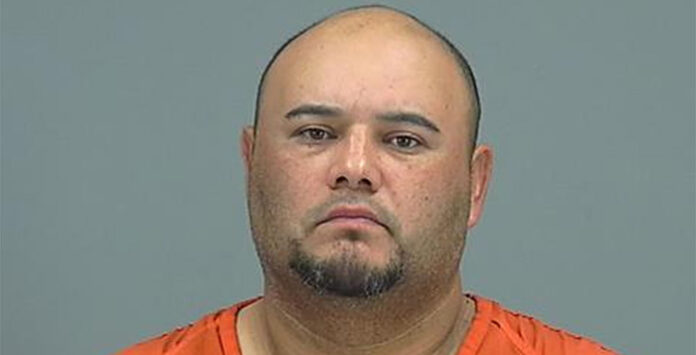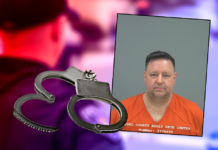A Pinal County judge struck down a motion Thursday aimed at returning one of Maricopa’s most high-profile murder cases to a grand jury on the grounds that jurors were prejudiced by prosecutors’ actions and their declared intent to seek the death penalty.
Public Defender James Mannato, representing alleged double-murderer Jose Valenzuela, filed the motion to remand the case to another grand jury based on potential bias and what he called “unintentionally false” facts presented to the grand jury which ultimately “reduced their objectivity.” Had his argument been successful, it would have been the third grand jury in the case.
Valenzuela, 40, is accused of murdering Michael and Tina Careccia in June 2015. Mannato already had the first indictment thrown out, forcing Pinal County to convene a second grand jury last year for a re-indictment.
Thursday, Mannato argued three factors contributed to the potential bias of the grand jury, none of which convinced Judge Kevin White that Valenzuela was denied any “substantial procedural right.”
The first indication of potential prejudice, Mannato argued, was a public disclosure by then-County Attorney Lando Voyles regarding his intent to seek the death penalty, which could have weakened the grand jury’s objectivity.
White said that assertion was “speculative on defense’s part.”
Second, Mannato said, by walking the grand jury through the first-degree murder conviction process, jurors were unfairly pushed to consider first-degree murder as the only charge, when in fact the jurors can and should consider all possible charges, including lesser forms of homicide such as manslaughter.
White said Mannato’s point does not indicate bias per precedent, stating improper proceedings do not call for remand unless “the testimony prejudiced or damage defendant,” which White does not believe happened.
The third point Mannato made, was regarding questions posed to law enforcement officers by county prosecutors that may have “misled” the grand jury into believing one of the victims, Tina Careccia, was shot at point blank range in the back of the head when in fact the entry wound was located on top of her skull, according to police statements
White said any potential misstatements or “misleading” questions based on the exact location of the victim’s wounds do not detract from the fact the medical examiner declared the wound to have been made at point-blank range, indicating possible premeditation.
Valenzuela’s trial is set for Jan. 23. The prosecution is being conducted by special prosecutor Gary Husk after Pinal County Attorney Kent Volkmer recused his office.





![Elena Trails releases home renderings An image of one of 56 elevation renderings submitted to Maricopa's planning department for the Elena Trails subdivison. The developer plans to construct 14 different floor plans, with four elevation styles per plan. [City of Maricopa]](https://www.inmaricopa.com/wp-content/uploads/2024/04/city-041724-elena-trails-rendering-218x150.jpg)

![Affordable apartments planned near ‘Restaurant Row’ A blue square highlights the area of the proposed affordable housing development and "Restaurant Row" sitting south of city hall and the Maricopa Police Department. Preliminary architectural drawings were not yet available. [City of Maricopa]](https://www.inmaricopa.com/wp-content/uploads/2024/04/041724-affordable-housing-project-restaurant-row-218x150.jpg)










![Elena Trails releases home renderings An image of one of 56 elevation renderings submitted to Maricopa's planning department for the Elena Trails subdivison. The developer plans to construct 14 different floor plans, with four elevation styles per plan. [City of Maricopa]](https://www.inmaricopa.com/wp-content/uploads/2024/04/city-041724-elena-trails-rendering-100x70.jpg)